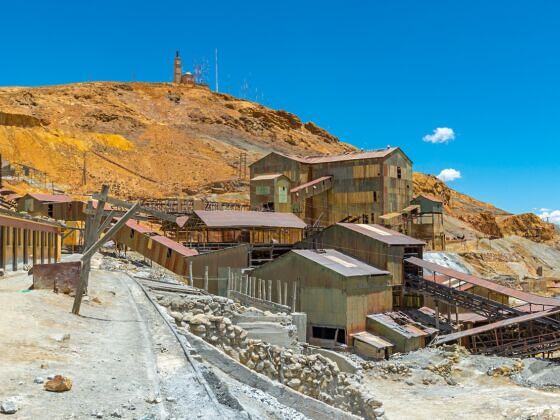Throughout its history, South America has been the “X” on the map of the metal mining industry. Multi-national corporations have extracted copper in Chile, iron in Brazil, gold in Ecuador, and other precious metals across the continent, causing intense controversy about environmental and human impacts of the practice.

In recent years, though, mining has been nationalized by various Latin American countries whose political and business leaders recognize that the lucrative practice could help them achieve greater economic autonomy. Decisions to nationalize mining are hardly conflict-free, however. It’s as much the practice of mining as who’s doing it that has caused communities to mobilize in support of anti-mining initiatives, such as El Salvador’s recent nation-wide ban on gold mining.
According to this recent article from the Americas Society, Bolivia is the latest country to be confronting the conflict between the economic lure of and the potential political mire that mining represents. The Americas Society indicated that approximately 5.4 million tons of lithium are buried under Bolivia’s salt desert, representing almost half of the world’s entire lithium reserves.
Lithium is an important ingredient in batteries, and is considered a more attractive metal for battery manufacturing than zinc due to its higher voltage.
Bolivian president Evo Morales has been praised for warding off salivating foreign investors from mining his country’s lithium. He’s also been praised for his long-term plans for the lithium: turning the metal into a usable resource for electric car batteries.
But his plans to nationalize lithium extraction have failed to gain widespread support.
As this BBC report indicates, the salt desert is a pristine landscape; mining would likely have profoundly negative environmental effects on “one of the world’s most unspoiled” places. Lithium mining on the salt flats would also be likely to detract from tourism, a significant part of Bolivia’s economy.
So how does Bolivia negotiate two seemingly competing needs: the need to become economically autonomous, on the one hand, and the need to preserve a pristine place on the other? Share your ideas in the comments below.
Community Connection:
Matador Nights’ editor Tom Gates went to Chile to learn more about the mining industry there. Read about what he learned–and didn’t learn–in “The Battle for Pascua Lama.”
Bolivia’s salt flats topped our list of the world’s most alien landscapes. Check out the photo essay here.